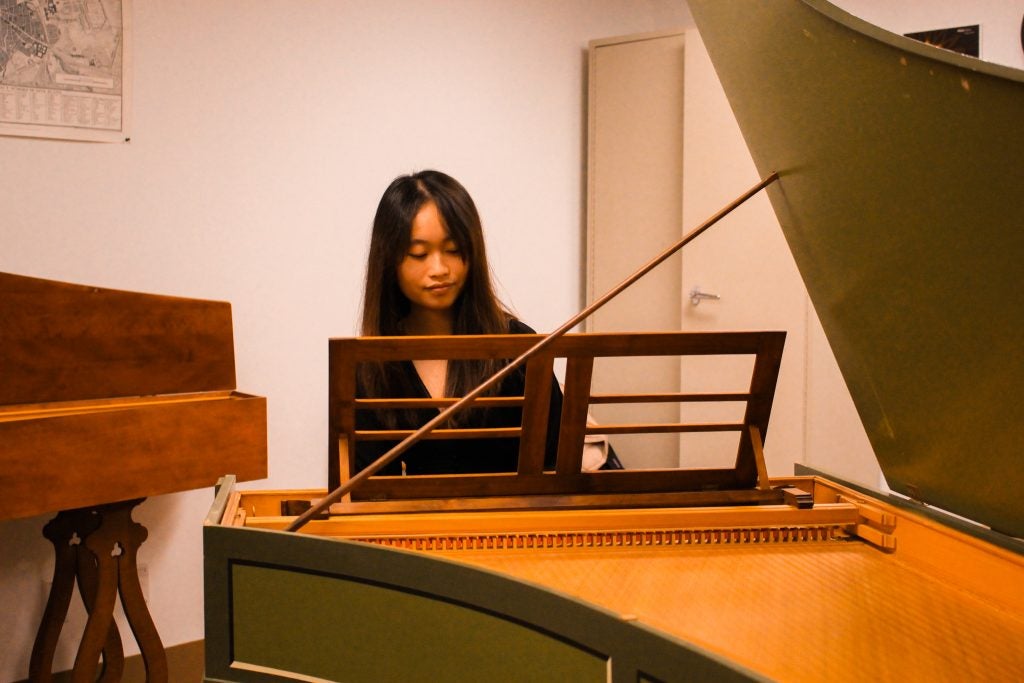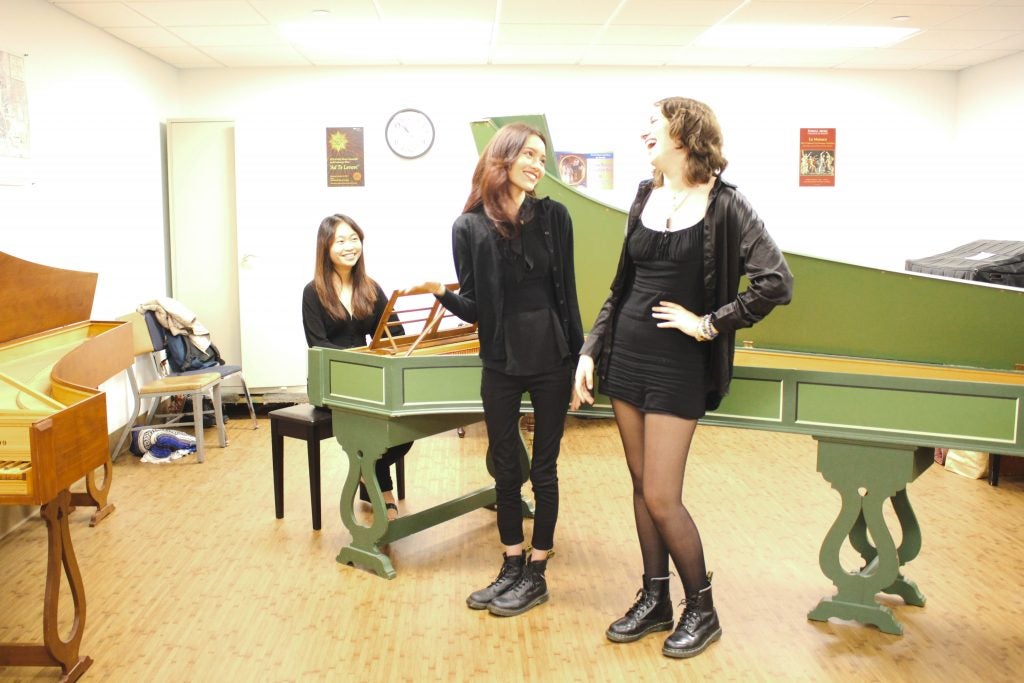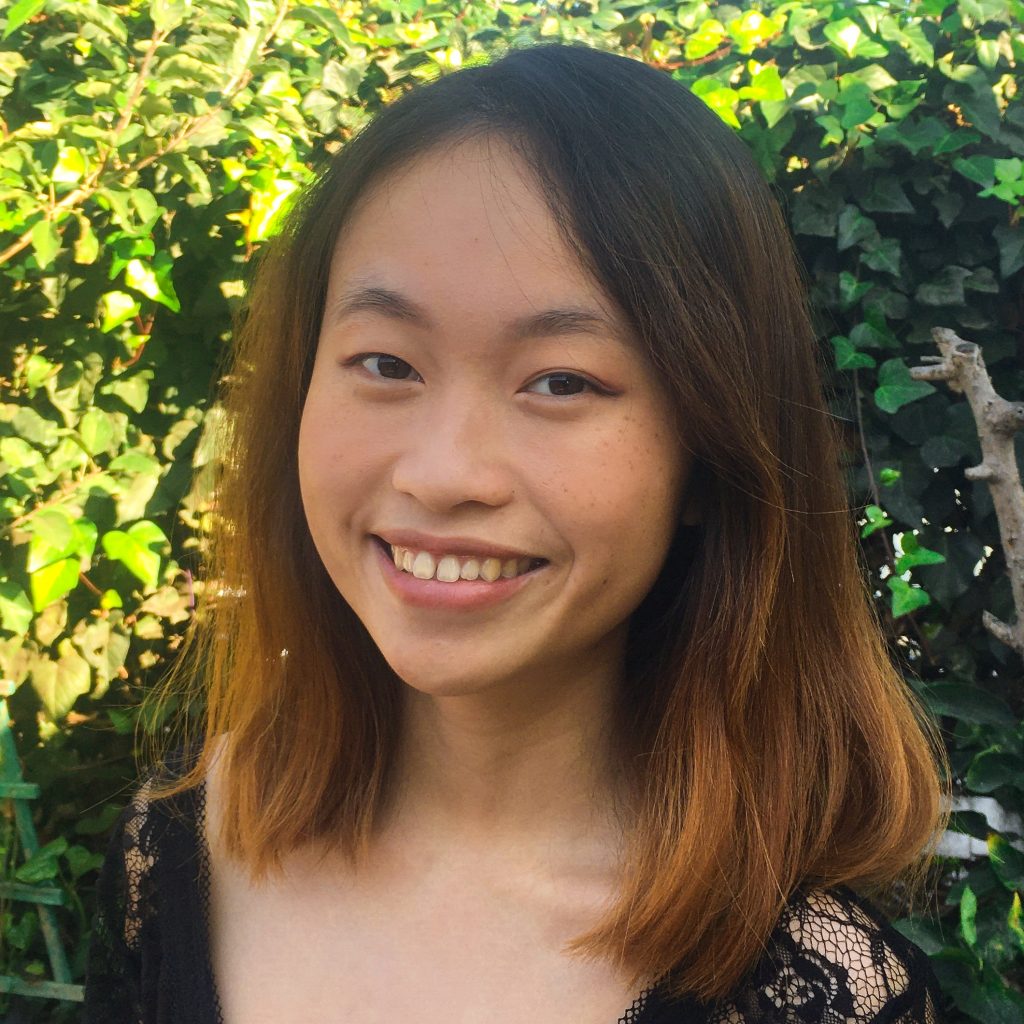The Beinecke Scholarship is one of the most competitive in the United States. It gifts the most exceptional students in the arts, humanities, and social sciences with substantial support for graduate study. In 2023, 87 institutions nominated one candidate apiece. Only 20 students make the final selection.
For the first time since 2015, one of those 20 is from UCLA. Meet Ashley Dao, a third-year undergraduate in Musicology.

“Ashley is one of the most remarkable people I have had the pleasure of working with,” said Ray Knapp, distinguished professor of musicology and the director for the Center for Musical Humanities (CMH). Knapp met Ashley during her first year at the School of Music when she agreed to edit MUSE, an undergraduate peer-reviewed journal. “I’m not sure how much I actually helped her, but I do know that she expanded the journal’s reach immensely, and that the conference she and her team put on was a spectacular success,” Knapp said.
Editing a journal is impressive enough, but Dao’s own undergraduate research demonstrates remarkable maturity and creativity. Taking as her subject the community of Little Saigon in the metro Los Angeles area, she studied the nostalgic musical practices of a three-generations-old refugee community. While many have cast such nostalgia as “reactionary,” Dao brought a contrary perspective. She proposed researching and understanding these musical practices with empathy.
“It was a move as simple as it was bold,” said Elisabeth Le Guin, professor emerita at the School of Music. “When she applied the concept of empathy, she was able to hear and interpret this music-making as an act of resilience, of healing and world building. It was really remarkable, nuanced, and courageous work.”
From the beginning, Dao’s academic work revealed not just academic talent, but the kind of curiosity and flexibility that opened her up to new ways of thinking. Such thinking is not always easy. As Jenny Johnson, a mentor who will be joining the musicology faculty in the Fall, said: “I have been particularly struck by Ashley’s willingness to sit with undecidable questions; to probe and ponder them, but not necessarily in search of easy solutions. Instead, Ashley’s curiosity leads her to ask even more complex questions, ones that have helped my own thinking about the complicated task of performing ethnographic musicological research.”
Dao spent the past year working with the Undergraduate Research Fellows Program, a competitive program directed through the Office of the Dean for Undergraduate Education and administered by the Undergraduate Research Center–Humanities, Arts, and Social Sciences.
“We are thrilled to be able to support Ashley’s innovative and exciting research,” said Jacquelyn Ardam, director of the Undergraduate Research Center for the Humanities, Arts, and Social Sciences, “and we are elated that she has won this prestigious scholarship.”
“I’m planning to enroll in a graduate music studies program after graduation,” said Ashley Dao. “I want to challenge the colonial histories of ethnomusicology and musicology while actively uplifting marginalized communities. And I also want to deepen my understanding of subfields, like film music studies, ludomusicology, music theory, and early music.”

With a track record of innovation and achievement bolstered by the Beinecke Scholarship, Dao is poised to continue important work in musicology well beyond her undergraduate education at the School of Music.
“I heard her give a paper at a conference hosted by the Center for Musical Humanities and it was one of the best,” said Ray Knapp. “And she was the only undergraduate presenting among professors and high-level graduate students.”
Dao was quick to acknowledge the importance of mentorship in the School of Music. In addition to her faculty mentor, Ray Knapp, she received substantial support from Elisabeth Le Guin, professor emerita, and Jenny Johnson. Jordan Hugh Sam, a Ph.D. student in musicology and a teaching assistant, was so impressed by one of her early papers that he encouraged her to expand it and submit it to conferences. “All of these people have played such a large role in my growth as a student, researcher, and person,” said Dao. “I cannot thank them enough for their support.”
